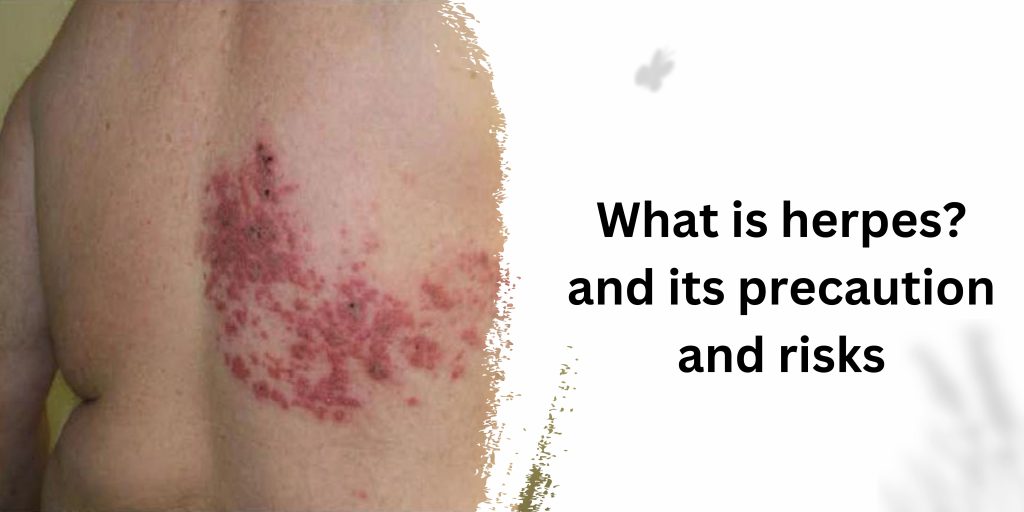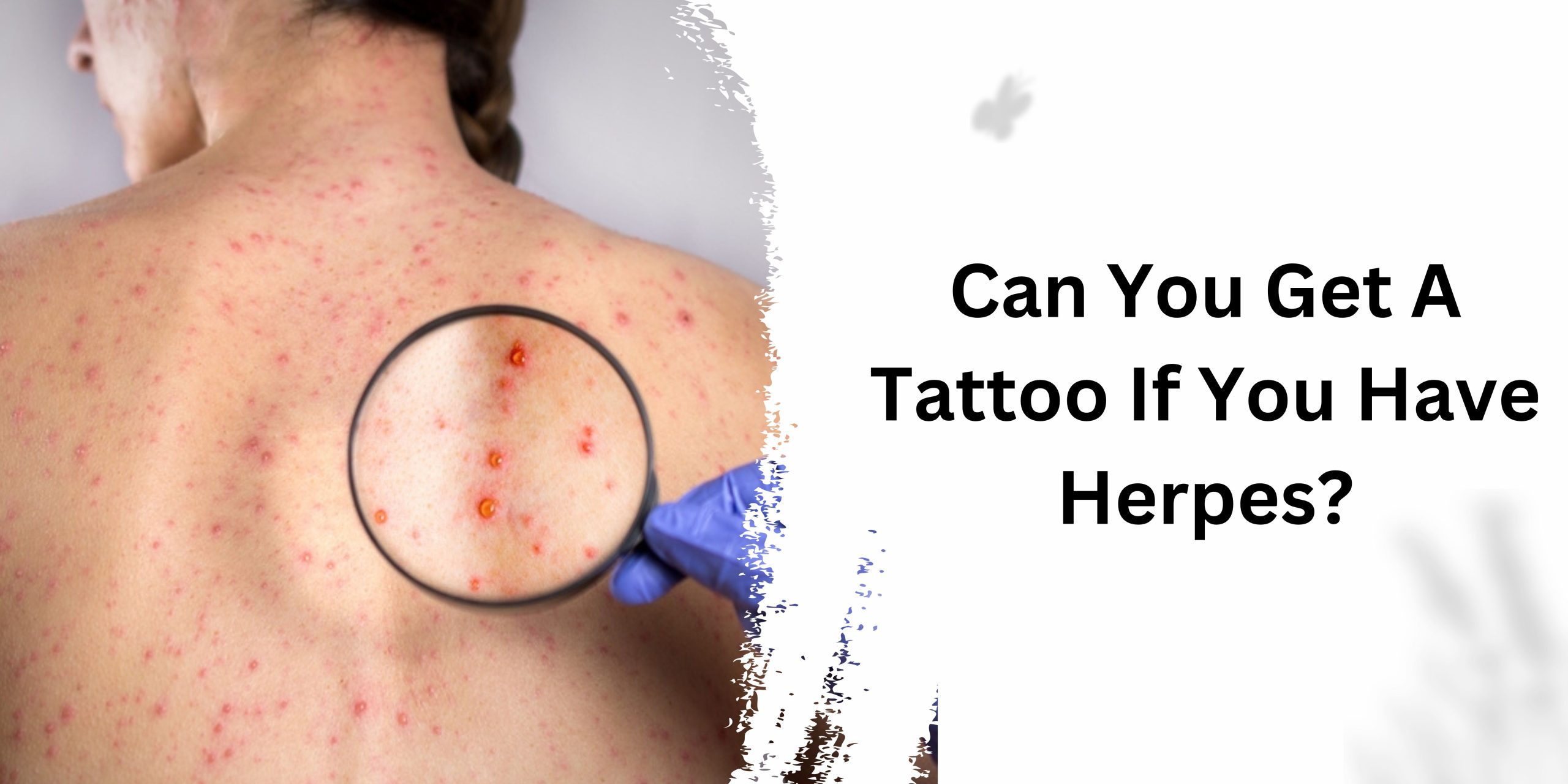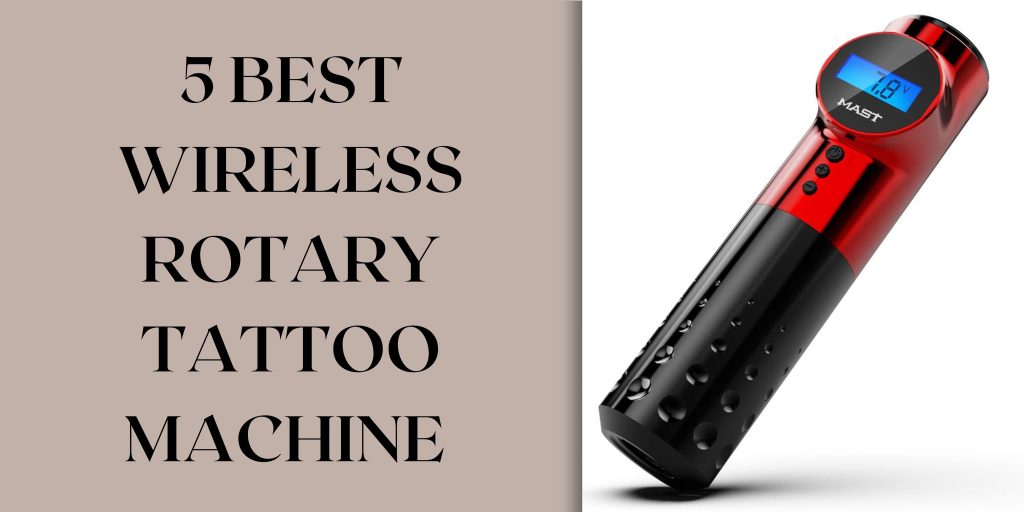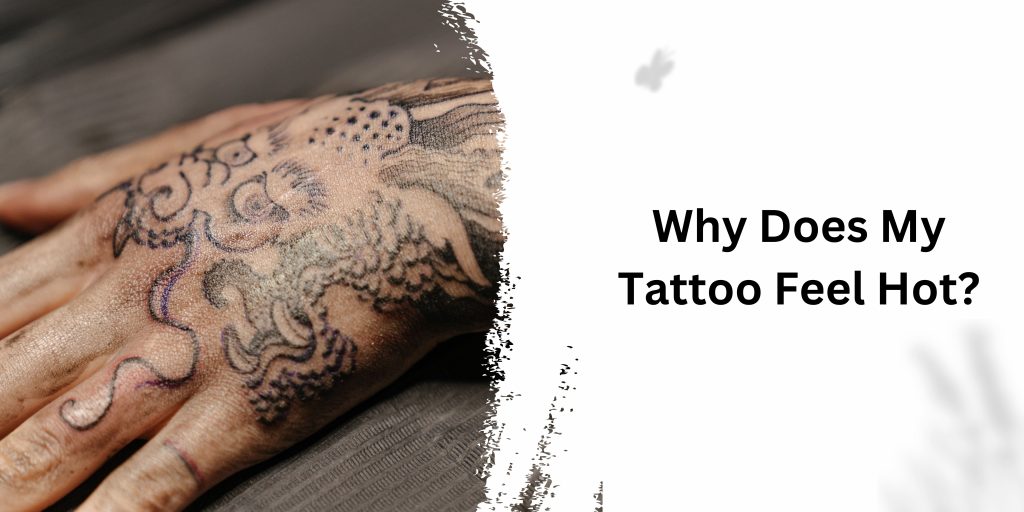Getting a tattoo is an exciting venture, a unique form of self-expression etched onto your skin for a lifetime. But what if you’re among the millions dealing with the herpes virus? Can you still join the inked community without risking your health? Let’s dive into the Can you get a tattoo if you have herpes?
What is herpes?
Herpes is a common viral infection caused by the herpes simplex virus (HSV). There are two main types of herpes viruses: herpes simplex virus type 1 (HSV-1) and herpes simplex virus type 2 (HSV-2).

- HSV-1: Oral Herpes
- Transmission: Typically spread through oral-to-oral contact. It’s commonly associated with cold sores and fever blisters around the mouth and on the face.
- Symptoms: Cold sores or blisters on or around the lips, itching, and sometimes flu-like symptoms during the initial outbreak.
- Spread: Can be transmitted through kissing, sharing personal items like utensils, or contact with infected saliva.
- HSV-2: Genital Herpes
- Transmission: Mainly spread through sexual contact. It causes genital herpes and can also be transmitted to the oral region through oral-genital contact.
- Symptoms: Genital sores, painful ulcers, itching, and discomfort. Initial outbreaks may be accompanied by flu-like symptoms.
- Spread: Primarily through sexual activity, including vaginal, anal, and oral sex.
Read More: Can You Tattoo Over Nexplanon Implants?
Can You Get A Tattoo If You Have Herpes?
Precautions
1. Consult with a Healthcare Professional
Before you ink your skin, consult with a healthcare professional. Their expertise can provide insights into your specific situation. They can advise on whether getting a tattoo aligns with your health condition and recommend necessary precautions.
2. Ensure Herpes is Dormant
Timing matters. If you’re in the midst of a herpes outbreak, it’s advisable to postpone your tattoo plans. Tattoos involve puncturing the skin, creating an open wound. Performing this during an outbreak increases the risk of infection and complicates the healing process.
3. Choose a Reputable Tattoo Studio
Selecting the right tattoo studio is crucial, herpes or not. Ensure the studio adheres to strict hygiene standards. Sterilization of equipment and the use of disposable needles are paramount in preventing infections.
4. Communicate with Your Tattoo Artist
Open communication is key. Inform your tattoo artist about your herpes condition beforehand. A professional artist will appreciate your honesty and take additional precautions to ensure a safe tattooing experience.
5. Follow Aftercare Guidelines Diligently
Post-tattoo care is essential, especially for those with herpes. Follow the aftercare guidelines provided by your tattoo artist religiously. This includes keeping the tattoo clean, avoiding excessive sun exposure, and refraining from scratching the healing skin.
6. Monitor for Signs of Infection
Stay vigilant post-tattoo. Keep an eye out for any signs of infection, such as increased redness, swelling, or unusual discharge. If you notice anything amiss, consult your healthcare professional promptly.
Read More: Can You Sue a Tattoo Artist for Bad Work
Risks
1. Increased Risk of Infection
Individuals with herpes have a compromised immune system, making them more susceptible to infections. The tattooing process involves breaking the skin barrier, heightening the risk of bacterial or viral infections, including potential herpes flare-ups.
2. Delayed Healing
Herpes outbreaks can significantly impede the healing process. A compromised immune system may struggle to repair the tattooed skin, leading to prolonged healing times. This prolonged healing period increases the chances of complications.
3. Potential Spread of Herpes
The nature of tattooing involves the release of bodily fluids. If a herpes outbreak is occurring during the process, there’s a risk of spreading the virus to others in the studio. Maintaining honesty and transparency with the tattoo artist is crucial to mitigate this risk.
4. Increased Pain and Discomfort
Herpes outbreaks often come with pain and discomfort. Adding the stress of a fresh tattoo to the mix may amplify these symptoms. Consider your pain tolerance and overall well-being before deciding to get a tattoo during an outbreak.
5. Possible Allergic Reactions
Herpes medications and the tattoo ink itself may not play well together. Individuals with herpes might experience unexpected allergic reactions, complicating the healing process and potentially leading to additional health concerns.
6. Risk of Recurrent Outbreaks
The stress associated with getting a tattoo, coupled with the physical trauma to the skin, may trigger recurrent herpes outbreaks. This cyclic pattern can compromise the long-term appearance and health of your tattoo.
Read More: Can I Drink Coffee Before Getting a Tattoo?
Conclusion
the decision to get a tattoo with herpes isn’t a straightforward yes or no. It hinges on various factors, including your current health status, the stage of the herpes virus, and the precautions you take. Consulting with healthcare professionals, choosing a reputable studio, and being transparent with your tattoo artist are crucial steps in ensuring a safe and successful tattooing experience.







